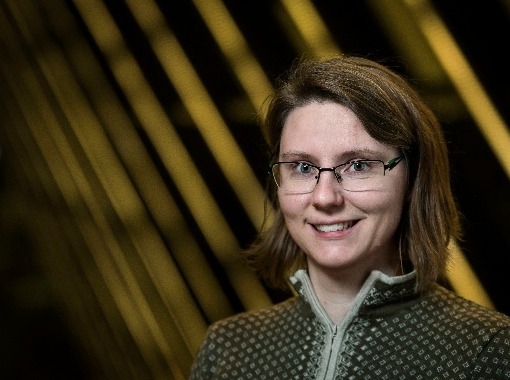Doctoral defence in Biology - Ragnhildur Guðmundsdóttir

Veröld - Hús Vigdísar
Room 023
Live stream: https://www.youtube.com/user/HIvarp/live
Ph.D. student: Ragnhildur Guðmundsdóttir
Dissertation title: Microbes and the groundwater amphipod Crangonyx islandicus in spring sources in Iceland
Opponents: Dr. Owen S. Wangensteen, Researcher at the University of Tromsø, Norway
Dr. Oddur Vilhelmsson, Professor at the Faculty of Natural Resource Sciences at the University of Akureyri
Advisor: Dr. Snæbjörn Pálsson, Professor at the Faculty of Life and Environmental Sciences, University in Iceland
Doctoral committee: Dr. Bjarni Kristófer Kristjánsson, Professor at the Department of Aquaculture & Fish Biology at Hólar University
Dr. Viggó Þór Marteinsson, Professor at the Faculty of Food Science and Nutrition, University of Iceland and Group leader at Matís
Chair of Ceremony: Dr. Anna Dóra Sæþórsdóttir, Professor and the Head of the Faculty of Life and Environmental Sciences, University of Iceland
Abstract:
Crangonyx islandicus is a groundwater amphipod, endemic to Iceland. Genetic analysis suggests that it has been diverging in Iceland for at least 4.8 Myrs indicating it survived in a subglacial refugia as Iceland was repeatedly covered by glaciers during Ice Age. The species has probably been inhabiting Iceland since before the island was formed, when the land bridge over to Greenland submerged into the ocean approximately 15 Mys ago. Currently the amphipods habitat is in the subsurface of spring sources in lava fields along the tectonic plate boundary. These spring sources act as a window into the groundwater but are also an ecotone where the groundwater mixes with the surface water and the terrestrial ecosystem. In this thesis the microbial community composition associated with the amphipods and its habitat was examined both to inspect its diversity and to elucidate which processes are likely to shape the community composition. The results showed that the amphipods are accompanied by few ciliate and bacteria taxa that are unique for the amphipod and can only marginally be detected in the spring source. Both stochastic and deterministic processes were found to shape the bacteria and ciliate communities in the spring source. Variables such as pH, temperature, presence of fish and geographical location were found to shape the bacteria community while temperature and dispersal was shaping the ciliate communities. The bacterial community in the spring sources, water and in the biofilms, harbored chemolithoautotrophic taxa, indicating a primary production in the groundwater system; providing a possible explanation for the subglacial survival of the amphipods during Ice age.
About the doctoral candidate:
Ragnhildur Guðmundsdóttir was born in Reykjavík in 1982. She graduated from Menntaskólinn við Hamrahlíð in 2002 and BSc in Biology from the University of Iceland in 2005. After finishing the BSc degree, Ragnhildur worked at the Marine Research Institute before she began her master's degree in marine ecology at Tromsø University in Norway and at the University Center of Svalbard (UNIS). She graduated with an MSc degree in 2008. Ragnhildur took an additional diploma in pedagogy and taught natural sciences at the Iceland School of Commerce. Ragnhildur started her Ph.D. in 2013.
In addition to her studies, she has taught at the University of Iceland, participated in educational courses organized by the University and the Icelandic Travel Association, coached the Icelandic team in the International biology Olympiad, served on the scientific committee for the conference of the Nordic Ecological Society (Oikos) and on the board of the Icelandic Society of Biology.
Ragnhildur is married to Olgeir Örlygsson. They live in Reykjavík with their three children, Örlygur Dýra (b. 2008), Þuríður Inga (b. 2010) and Bergstein (b. 2015).
Ragnhildur Guðmundsdóttir



